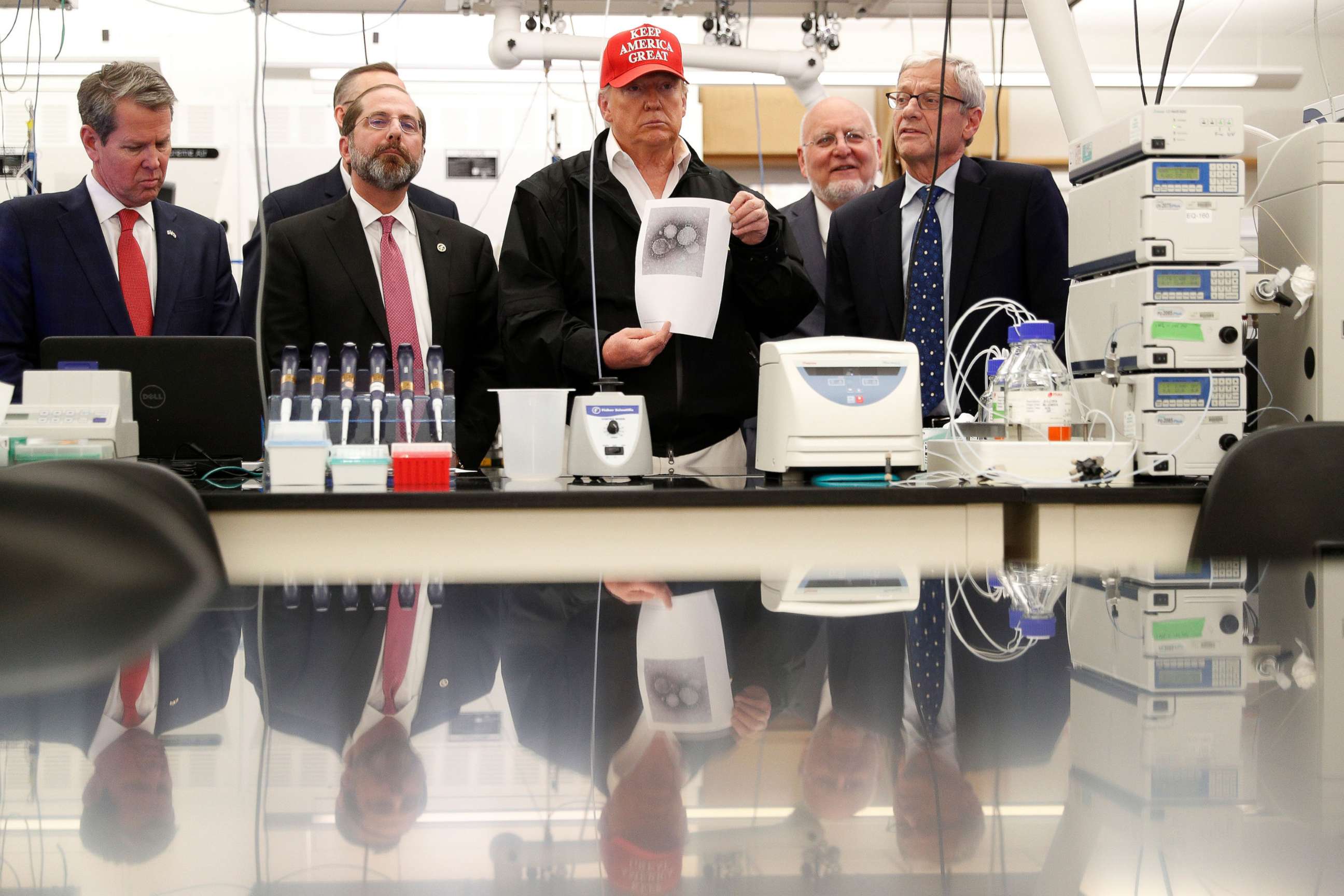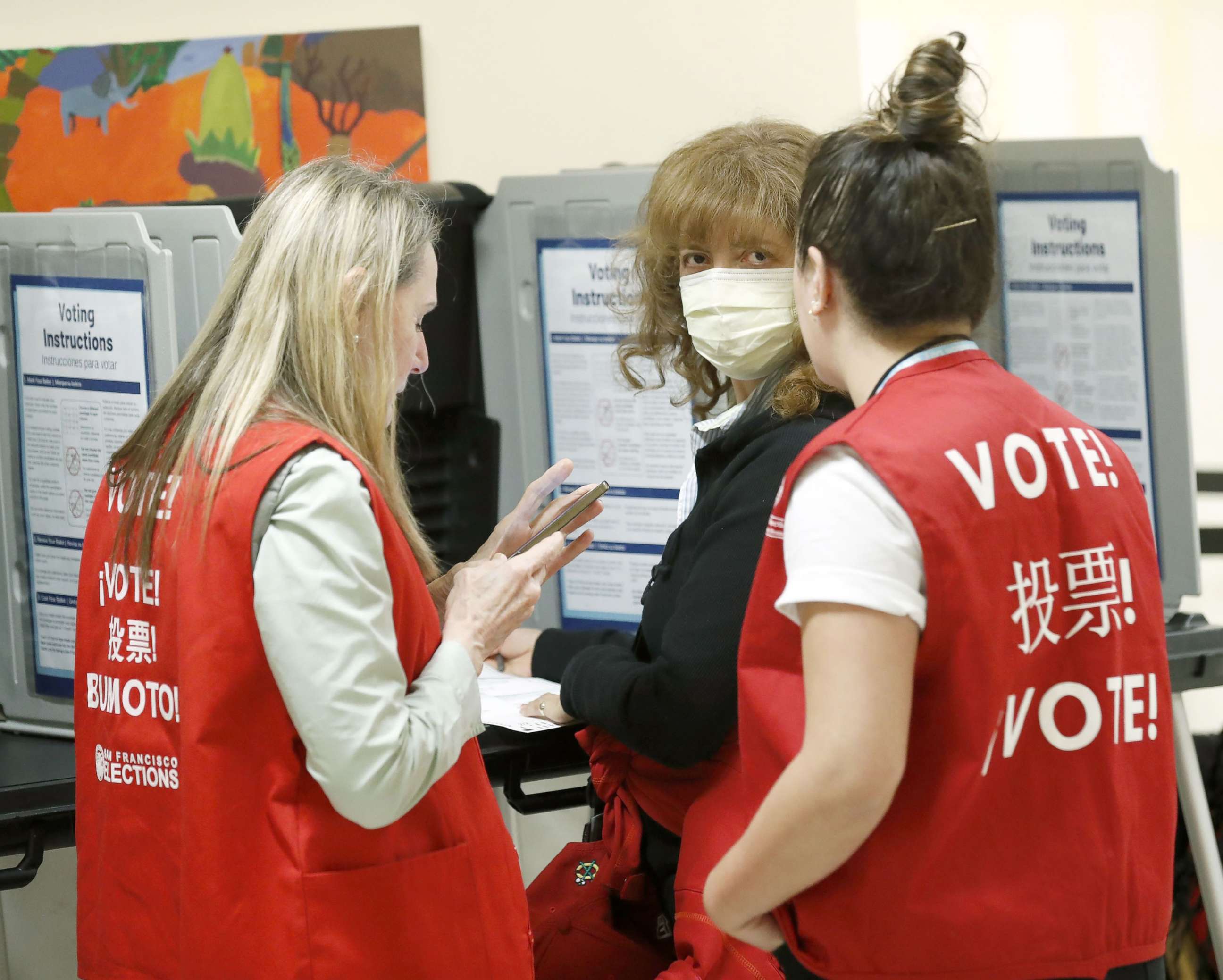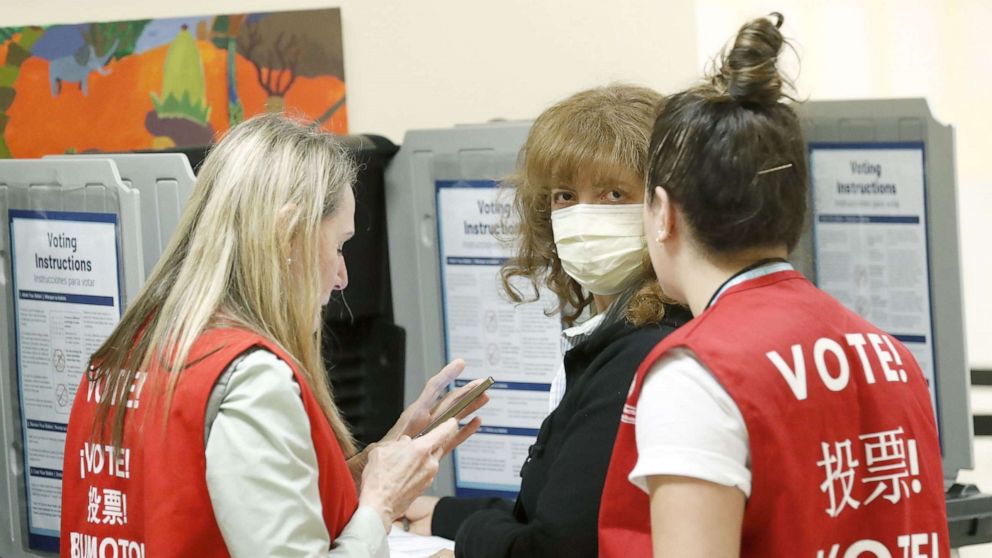Election officials prepare for challenge of coronavirus ahead of Tuesday's primaries
One week after Super Tuesday, voters in six additional states will head to the polls amid the coronavirus crisis that has now reached 36 states and the District of Columbia.
As COVID-19 continues to spread across the United States, election officials are closely monitoring the virus as the federal government shifts from a containment strategy into a mitigation phase.
The new coronavirus has complicated the 2020 election season with its unrelenting global impact, killing more than 4,000 people and infecting over 110,000 worldwide.
Some state officials are making adjustments to their primary administration efforts even before confirmed cases of the coronavirus reach their state.
In Idaho, where the state holds a presidential preference vote on Tuesday and a primary in May, state officials have sped up parts of contingency plans that were already in place to address election disruptions.
The Idaho secretary of state’s office accelerated orders for additional laptops in order to provide increased flexibility for employees to operate remotely or in emergency conditions.
“It was a cybersecurity strategy early on to give us the ability to offset any kind of natural disaster, it wasn’t anticipated to be this,” Chad Houck, the Idaho deputy secretary of state told ABC News Monday. “But now we accelerated because of COVID,” Houck said.

“It’s a present challenge that’s in front of us, so it made sense. It was already a plan that we had, we just accelerated the timeline,” he said.
As a result, all employees in the Idaho secretary of state’s elections division now have laptops on the way.
In response to the outbreak, secretaries of state that spoke to ABC News urged voters to cast their votes but take extra precautions.
“Go to the polls,” Missouri Secretary of State Jay Ashcroft said. “I would, as politely as possible, tell people to follow through on their responsibility to participate and help to continue to make this state and this country the best it can be. And that happens when the people of this state in this country get out and make their voice heard.”
Ashcroft told ABC News that people should take the same precautions as those for the flu and said that Missourians are used to voting in the primary elections during flu season.
He also said that election officials would be making hand sanitizers available and wiping down the ballot boxes on Tuesday.
Currently, there is at least one reported case of COVID-19 in Missouri.
In a memo that went out to election clerks last Wednesday afternoon, the Michigan state officials urged poll workers to distribute hand sanitizers and wipes, plus keep latex gloves at the polling places and wipe down voting equipment.
The memo also said that election clerks should be prepared for contingency plans on election day.
The Mississippi secretary of state has also advised voters to use basic hygiene when going to the polls.
“We’re encouraging voters to make sure they wash their hands as often as possible and continue to practice good hygiene. With no confirmed cases in our state, we obviously still want to remain cautious. We encourage all Mississippians to go vote,” Mississippi Secretary of State Michael Watson said.

In Washington, the state at the center of the U.S. coronavirus crisis, election officials are emphasizing similar sanitary practices and precautions. With elections in the state administered exclusively by mail-in ballot, officials have urged voters not to lick the envelopes containing their ballots in response to the coronavirus outbreak. Instead, officials have recommended voters use water or a sponge to seal them.
In a statement given to ABC News Monday, David Partenheimer, the manager of public relations at the United States Postal Service, said that “both the surgeon general and the director of the National Institute for Allergies and Infectious Diseases have indicated that there is currently no evidence that the coronavirus can spread through the mail.”
With 37% of the vote already in ahead of Tuesday's primaries in King County, Washington, election board chief of staff Kendall Hodson told ABC News that they were adding regular handwashing and sanitizing breaks, and that employees also had the option to wear gloves while handling ballots.
However, she said that workers were not touching the top where envelopes are sealed.
As new states report cases of the coronavirus linked to suspected community spread, convention officials from both parties continue to plan for the party conventions to proceed as planned as they monitor the impact of COVID-19.
“Ensuring the safety of convention attendees and local residents is -- and will always remain -- our top priority,” Democratic National Convention CEO Joe Solmonese said in a statement to ABC News.
“Every convention necessitates developing a number of contingency plans to provide for a variety of scenarios," he said. “As we prepare to welcome Americans to Milwaukee this summer, the convention team will remain in constant communication with the local, state, and federal authorities responsible for protecting public health and security.”
A spokeswoman from the Republican National Convention said in a statement to ABC News Monday that the convention team was closely monitoring and coordinating with key stakeholders across the administration, HHS and CDC to obtain regular updates on the coronavirus outbreak.
“We prioritize the health and safety of attendees and have the utmost confidence in the administration’s work and preparations,” the statement said
The coronavirus is not the only concern for state election officials on Tuesday.
Ashcroft said he’s “confident” the Missouri primaries are safe from a cybersecurity perspective, but said the disinformation portion of election security is the “hardest to fight.”
“We need to make sure we protect all of our rights. Voting is one of those, but also is the freedom of speech,” he explained.
Susan Greenhalgh, the vice president of policy and programs for the National Election Defense Coalition told ABC News that everywhere but North Dakota is vulnerable. North Dakota, she explained, does not have a voter registration database. If these go down, or the data is corrupted, it could prevent voters from voting a regular ballot, she said.
Houck said in Idaho they have been much more proactive in their approach to “monitoring and distributing information on social media,” given all of the disinformation that was publicly consumed in 2016.
“We, with DHS, with our DHS partners, we've put out some posters and done some campaigns at the local level in all of our polling locations, for example, with some emergency operations plans, so that people have confidence that there's actually planning going on,” Houck said.
In Michigan, the state widely expected to be the most competitive on Tuesday, the secretary of state said the elections are the safest they have ever been.
“Despite the attempts to meddle in our elections that have been reported at a national level, Michigan’s elections system is more secure than ever, and voters should have full faith that every vote will be counted and results will be reported accurately,” said Secretary Jocelyn Benson.
“My administration has done significant work to bolster our election security, and we will continue to do so through the November election and beyond,” she said.
ABC News' Kendall Karson, Ali Dukakis, Meg Cunningham, Quinn Scanlan and Lucien Bruggeman contributed to this story.




